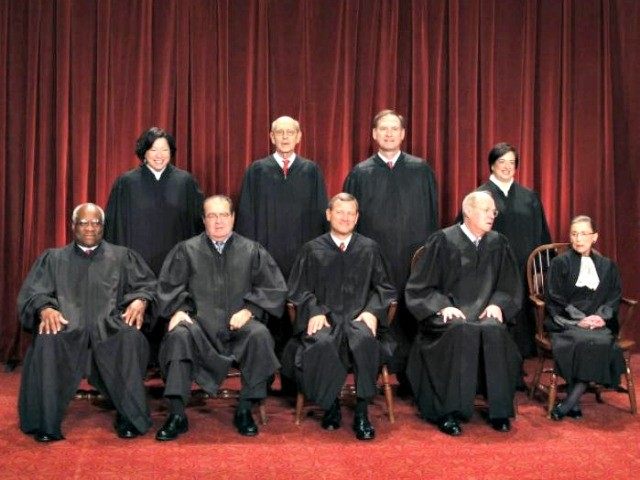On Friday, the Supreme Court announced that it would at long last settle the issue of same-sex marriage across the country, answering whether the Constitution of the United States had magically grown a right to marry members of one’s own sex.
Already, the two sides are celebrating prospective victory. Members of the pro-same-sex marriage community believe that last year’s legally asinine ruling suggesting that the federal government cannot define marriage for purposes of federal benefits foreshadows the Court’s upcoming decision to knock out the final vestiges of traditional marriage legislation.
Members of the traditional marriage caucus believe that the Supreme Court has seized upon a split in the circuit courts to finally send the question of same-sex marriage back to the states.
Naturally, the Obama administration is mobilizing in favor of same-sex marriage. Betraying the fact that the Obama administration and the left more broadly see the Supreme Court not as the interpretational arm of the Constitution but as a political tool, Attorney General Eric Holder announced, “It is time for our nation to take another critical step forward to ensure the fundamental equality of all Americans – no matter who they are, where they come from, or whom they love.” One looks forward to the Obama administration’s upcoming defense of incestuous marriage as well under this principle.
But where will the Supreme Court actually land?
In all likelihood, the Supreme Court will strike down traditional marriage laws altogether. Justice Anthony Kennedy has been itching for this opportunity for literally decades. In Romer v. Evans (1996), Kennedy struck down a state constitutional provision in Colorado that prohibited the legislature from including homosexuality as a protected class under the law. He called that provision a “bare… desire to harm a politically unpopular group.” Justice Scalia rightly pointed out that states have the ability to legislate against activity and discriminate between different types of activity. But, as usual in major cases, he was in the minority.
Justice Kennedy then expanded on his opinion in Romer when he reversed the Court’s longstanding policy with regard to sodomy laws, discovering in Lawrence v. Texas a Constitutional right to such sexual activity. In fact, he discovered the utterly new right to “respect for [people’s] private lives,” an odd standard given how little respect for people’s private lives the government traditionally has had. He then added:
The present case does not involve minors. It does not involve persons who might be injured or coerced or who are situated in relationships where consent might not easily be refused. It does not involve public conduct or prostitution. It does not involve whether the government must give formal recognition to any relationship that homosexual persons seek to enter.
But, of course, that last sentence was a fig leaf. For, once Kennedy had banned the government of Colorado from setting aside homosexuality as a protected class, and banned states from regulating homosexuality altogether, how can a state justify not giving the same marital protections to homosexual couples? Scalia rightly wrote at the time:
Today’s opinion is the product of a Court, which is the product of a law-profession culture, that has largely signed on to the so-called homosexual agenda, by which I mean the agenda promoted by some homosexual activists directed at eliminating the moral opprobrium that has traditionally attached to homosexual conduct…. [T]he Court has taken sides in the culture war, departing from its role of assuring, as neutral observer, that the democratic rules of engagement are observed.
And then, of course, last year Kennedy scrupulously avoided entirely signing onto same-sex marriage – but, as Justice Scalia wrote, that too was a fig leaf:
As far as this Court is concerned, no one should be fooled; it is just a matter of listening and waiting for the other shoe.
The other shoe is about to drop.
Ben Shapiro is Senior Editor-At-Large of Breitbart News and author of the new book, The People vs. Barack Obama: The Criminal Case Against The Obama Administration (Threshold Editions, June 10, 2014). He is also Editor-in-Chief of TruthRevolt.org. Follow Ben Shapiro on Twitter @benshapiro.

COMMENTS
Please let us know if you're having issues with commenting.